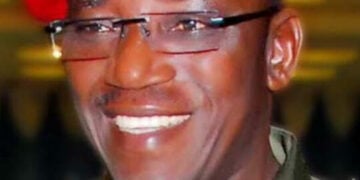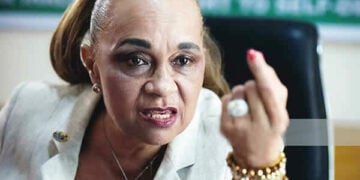Women International Film Festival Nigeria (WIFFEN) marked the International Day of the Girl-child, and mental health with a female filmmakers’ congress, a platform aimed at empowering females to tell women’s stories, in addition to creating network, skills and information sharing opportunities to strengthen the community of female filmmakers in Nigeria.
A collaborative project of Girls Voices Initiative, the Embassy of France Nigeria, and Institute Français, Abuja, the congress saw the premiere of two short films Miss Binary and The Burial of All Women produced by graduates of the 2022 Girl Nation Kano, and Girl Nation, Abuja. The films addressed themes such as the education of girl-child, early marriage, rape, sexual violence and trafficking, and social justice.
It further hosted panel sessions featuring Nollywood female filmmakers like Naila Media’s Nadine Ibrahim, and actress and Dee Dee Films’ Rahama Sadau, who shared tips on how to make global standard films that can stream on Netflix, Amazon Prime and international festivals. The congress also featured a mother-daughter duo session, with Barr. Ese Igbako and filmmaker, Osaro Igbako both drawing from their experiences to advice on the need for filmmakers and creatives to establish a corporate or professional status for their business. And finally, featured a session with Zenith Bank’s Credit Manager, Muhammad S. Bawa who educated congress participants on how to raise funds for their films, in addition to what financial institutions lookout for in business proposals and portfolios.
Speaking of the journey from Girls Voices, to WIFFEN, the Girl Nation and a congress for female filmmakers, founder Girls Voices Carolyn Seaman said it has been “a journey of moving parts but with the ultimate goal and destination within sight.”
The journey has been an organic growth of some having to fill in the needs/gaps that existed in the space or system they occupied. Kicking off initially with the non-profit Girl Voices, an initiative that educates adolescence girls and young women of their rights, then empower and position them to advocate for their rights themselves, the initiative began to invest in developing women’s skill in technology and digital media via the Girl Nation programme, as both are key skills, they need to become not just to become a powerful voice but financially empower women to influence the change they want in their societies.
The creation of films highlighted the need for specific platforms for women filmmakers particularly as the existing platforms are fiercely competitive and male dominated, and often resulting to women being edged out information, and award-wise. Hence, the establishment of WIFFEN to provide more visibility for female films, and identify and celebrate more skilled female filmmakers.
“When we narrow the playing field it allows you to see more women films, to celebrate more women films and to identify more women filmmakers who actually have skills, those to watch out for, and invest in. Hence, the WIFFEN awards.
To address the challenge of few Nigerian films made by women, Seaman and her team established the female filmmakers’ congress. According to Seaman about 383 films by male filmmakers were submitted at WIFFEN, with very little films made by women in Nigeria. “It shows that there is a gap in access to information (by women) even in their own industry. These are the things that need to change to better position women to male the best of opportunities in the industry and thrive.
“The congress is that safe space where women can communicate; where they can say “this is where we are at, and this is what we need, even though we still have the challenge of men wanting to come into this space reserved for women.
“I don’t have a problem with men, but I wish they brought one or two women along with them, or submitted works by women because this space was curated for them and they should benefit the most from it,” said Seaman.
The success of the congress saw more women express their interest in participating in Girl Nation programme next year, and thus begs the issue of sustainability of the project. Particularly as the Seaman and her team struggles with the challenges of funding and shortage of time to train female filmmakers, create scripts, shoot the films, and screen at the festival, within the six months window frame of their major grantor, PISCCA.
“At this point, we are having a rethink, and going back to the drawing board to see what else we can innovate. Does this have to continue in the same manner? At this point, I am going into 2023 unsure of what the outcome will be.
“I know that women filmmakers will continue to be empowered. I know that we are planning to host WIFFEN in 2024, and the congress, we hope holds next year; but for the trainings, we are thinking how best to structure it so we can reach more people, part-time. I don’t have anything clear, but let’s see what 2023 brings,” concluded Seaman.





